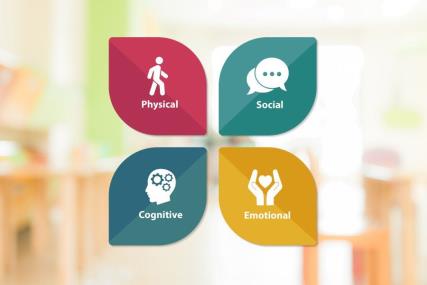Education is a fundamental aspect of human society, shaping the minds and lives of individuals across the globe. It is a process that involves the acquisition of knowledge, skills, values, and beliefs through various methods such as teaching, training, and research. The definition of education goes beyond traditional classroom learning, encompassing informal learning experiences, self-study, and lifelong learning.Join us as we explore the diverse definitions of education and its transformative power in shaping the future of humanity.
Education is a fundamental component of human development, essential for acquiring knowledge, skills, values, and beliefs necessary for personal growth and societal progress. While the concept of education may seem straightforward, it encompasses various approaches and perspectives that shape individuals’ learning experiences. In this blog post, we will explore different definitions of education, highlighting key characteristics and implications for both educators and learners.
Traditional Approach
In the traditional sense, education is often understood as the systematic process of imparting knowledge and skills to individuals through structured institutions such as schools, colleges, and universities. This approach emphasizes the importance of formal education in preparing individuals for success in their careers and contributing to a knowledgeable society. The traditional approach to education typically follows a prescribed curriculum, focusing on subjects such as math, science, language arts, and social studies.
Progressive Approach
In contrast to the traditional approach, the progressive approach views education as a dynamic and student-centered process that values experiential learning, critical thinking, and creativity. This approach emphasizes the importance of fostering a holistic development of individuals, focusing on their social, emotional, and intellectual growth. Progressive educators often advocate for student-centered teaching methods, collaborative learning environments, and real-world applications of knowledge.
Lifelong Learning Approach
The concept of lifelong learning expands the definition of education beyond formal schooling to encompass continuous learning throughout one’s life. Lifelong learning emphasizes the importance of acquiring new skills, updating knowledge, and adapting to changing circumstances in both personal and professional contexts. This approach recognizes that learning is a lifelong journey that extends beyond traditional classroom settings and encourages individuals to seek out learning opportunities in diverse environments.
Multicultural Approach
The multicultural approach to education recognizes the diversity of backgrounds, experiences, and perspectives among learners and emphasizes the importance of inclusive and culturally responsive teaching practices. This approach values diversity as a source of richness and promotes learning environments that respect and celebrate differences among individuals. Multicultural education aims to foster understanding, empathy, and respect for various cultures, identities, and worldviews.
Critical Pedagogy Approach
Critical pedagogy challenges traditional notions of education by emphasizing the importance of social justice, equity, and empowerment in the learning process. This approach encourages learners to critically examine and question social structures, power dynamics, and inequalities in society. Critical pedagogy aims to empower individuals to become active agents of change, advocating for a more just and equitable world through education.
Conclusion
The definition of education is multifaceted and encompasses a range of approaches that shape individuals’ learning experiences and outcomes. Whether it is through traditional, progressive, lifelong learning, multicultural, or critical pedagogy approaches, education plays a crucial role in shaping individuals’ personal development, fostering societal progress, and promoting a more inclusive and equitable world. Educators and learners alike can benefit from embracing diverse perspectives on education and exploring innovative ways to enhance the learning Experience.
